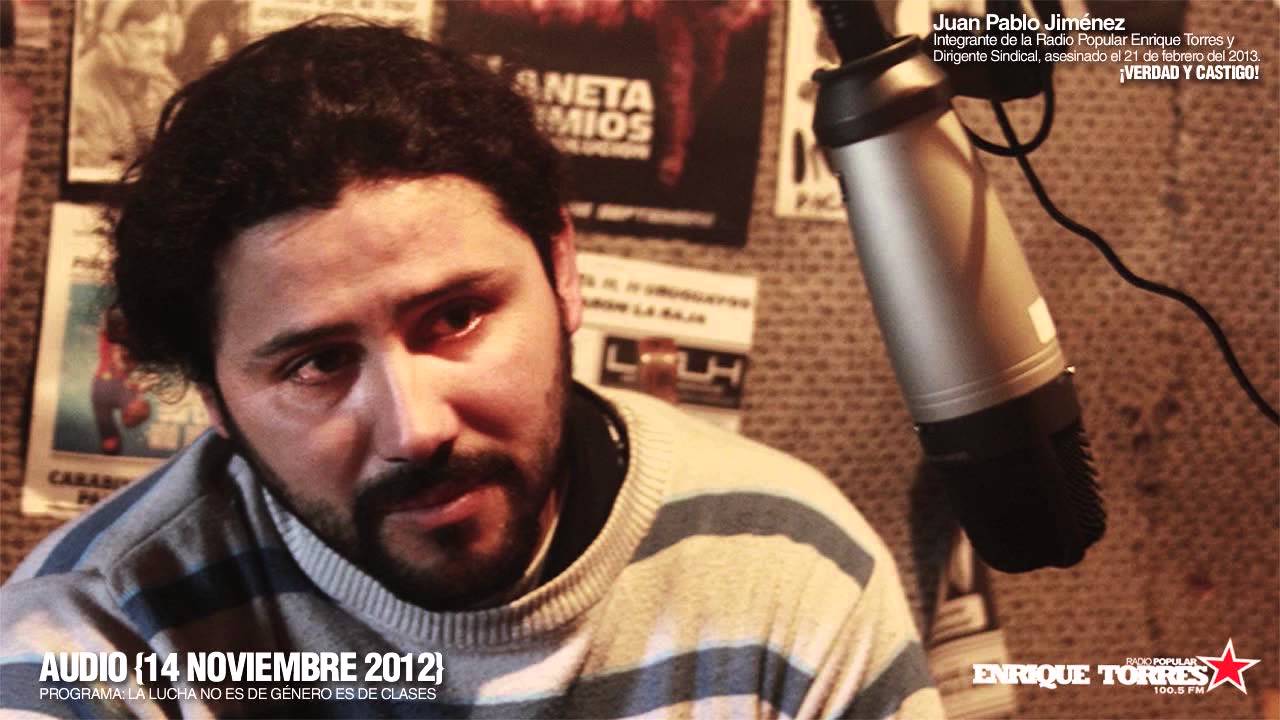Juan Pablo Jiménez was a union leader who fought against subcontracting regulations, from a grassroots level. He aimed at unifying all of those who worked for the conglomerate AZETA, regardless of the name of the company by which they were directly employed. He also opposed dangerous work practices and fought to improve safety conditions and reform the shift system, which sometimes stacked 2 or 3 shifts back-to-back.
On 21 February, 2013, Pablo was found dead with a bullet wound in his skull. At the time of death, he was preparing complaints against AZETA. The police quickly suggested the hypothesis that a stray bullet, fired almost a kilometer away, had killed Juan Pablo. Independent experts ruled out the theory.
Five years later, Pablo’s family is still waiting for justice to be done. «We have the desire to continue, until the truth comes out,» said his wife Ximena says. The family, like many of his peers, believe that this murder as opposed to a freak accident
The Crime
On 20 November, 2017, a letter from Prosecutor Hernán Soto arrived at Pablo’s former home. It confirmed that the case was to be filed provisionally, due to lack of evidence. The letter stated that the entity would not continue investigating unless Pablo’s relatives were to deliver new evidence aside from that which had already been submitted. Pablo’s wife commented «they did nothing. Because they have the name of who we think it was, but they have never investigated it. They have no idea of anything. » Contained in the file they submitted to the Prosecutor’s Office was the name of the person that the family believe killed Pablo. His father explained that the family had been contacted by an anonymous person who said «This is the person who shot Juan Pablo (name and surname). I worked with Juan Pablo. Investigate this. » The family’s research found that this person began working for the company on 1 February, 2013, remaining there until his contract ended in March (Juan Pablo was murdered on 21 February 21.) The prosecution never investigated this.
An Exemplary Struggle
Pablo, as his family called him, was someone who always kept in mind his role as a campaigner and trade unionist. «If he came home with his laptop and we were all there, he wouldn’t engage. He’d open it up and think of nothing but the union. He was studying that book by Recabarren and carried it around everywhere. Clotario Blest’s too «, his father Juan Carlos told Radio San Joaquin. «I’d say, Juan Pablo, they’ll throw you out of there for being a union leader and no one else will hire you but his answer was always ‘sure they’ll cut me off from my job, but they can’t cut off my hands.»
Juan Carlos also described an event that caught his attention, during one of the many demonstrations in support of his son. «At a march a gentleman approached me and said: ‘I know that you are JP’s father, but he belongs to all workers now. There’s a reason we came here. I was surprised to learn of how the figure of Pablo has been seen by the working class.”
Ximena similarly described the political symbol that her partner became: «It’s going on 5 years but if one says the name of Juan Pablo Jiménez, people know who he is. He sticks in the subconscious — ‘Yes, the union leader.’ And they start asking what happened after so much time. »
Juan Carlos explained what their relationship with other political sectors has been like, especially with CUT (Workers’ United Center of Chile.. «To think that we did not receive anything from the CUT even though he is the first unionist killed in democracy (…) I was at an action with the parents of of the Vergara brothers, JP was murdered on February 21 and this was in March. And a journalist told me that our participation in the action made us violent and that’s why the CUT did not support us. «Sources: Radio San Joaquín and El Desconcierto

